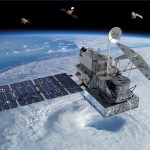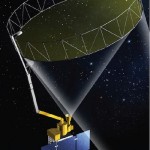
Students should take away the basics of climate change and understand how climate impacts decision-making in their sector of interest. Enhancing their knowledge of the physical science is a must as well as understanding the importance of social science in the context of climate risk management.

Imagine a drought year for a small farmer. Crops, the money he invested and his yearly source of income is lost. How can he be helped? Maybe he could ask his family or neighbors, but what if his community depends on agriculture and has the same problem. Is there a way to help from space? It might sound weird, but yes.

What is the first thing that comes to mind when you think of satellites? If you were alive in the 1960s, you might have vivid memories of Russia’s Sputnik — the world’s very first satellite — and the resulting Space Race to be the first country to reach the moon. For younger generations, your association with satellites might be from brief references in pop culture, such as a glimpse in the Disney movie WALL-E or maybe something more Star Wars-esque. Now, picture a rural community in a poverty-stricken part of Africa.






